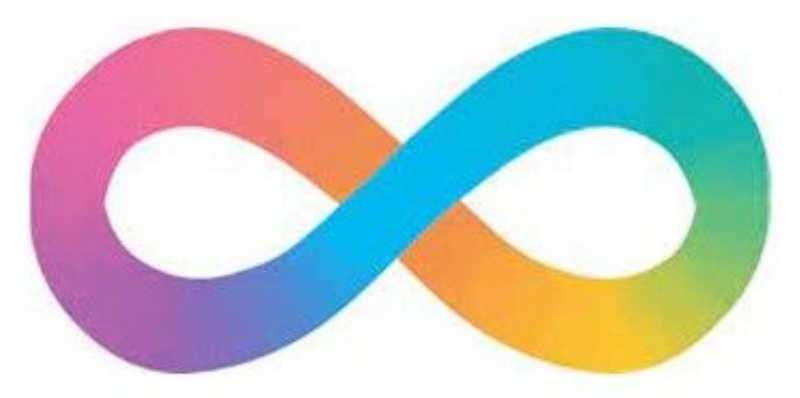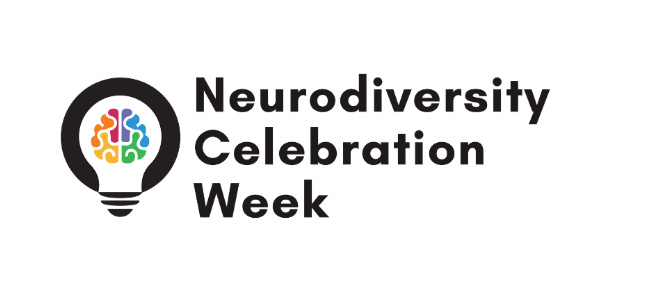BGS Celebrates Neurodiversity! ~ 18th-24th March 2024


This was the first year that BGS has participated in Neurodiversity Celebration week, and we are looking forward to continuing to do so and making it even bigger and better in the years to come. Watch this space!
Please read on to hear more from some of the students themselves.
Mrs Meyer, Assistant Headteacher and SENCo
Mrs Sitch, Higher Level Teaching Assistant (SEND department)
I was diagnosed with autism when I was in Year 9, aged 13. Unfortunately, autism is often diagnosed a lot later in girls, if diagnosed at all, when compared to boys, because we are more prone to doing something called masking, which is hiding symptoms whether that’s intentional or subconscious. For me, the main symptoms I face are sensory difficulties, especially regarding food and noises, anxiety, “black and white” thinking, and thriving with a strict routine. Since being diagnosed, I’ve learnt more about my condition, allowing me to better manage things that I would have previously struggled with. The best way to support those around you that may be neurodiverse is to treat them like any other person, but acknowledge any difficulties they may have, and help accommodate them to the best of your ability, without shaming them or condescending them. In a school environment, it’s helpful for teachers to know anything that could be a struggle for me, so that they will be better equipped to help me should any problems arise. In my personal life, it’s also been helpful to reach out to other neurodivergent people, so I can have conversations with people who understand me very well. Whilst being autistic can make life challenging for me, I also love how I’m able to see the world in a completely unique way, and how I’m able to appreciate little details that neurotypical people may not pay attention to in the same way, and I know many other neurodivergent people feel similarly, and so I believe it’s really important to celebrate neurodiversity. Happy neurodiversity celebration week!
Lois, Year 12
I would like to speak about my diagnosis.
I was put forward for a screening for dyslexia in Year 4 due to the lack of consistency in written work. My written work wasn't living up to the standards of other areas of my work. My spoken communication was very good, but it wasn’t transferring on a page. Also, my reading wasn’t as fluent as it should be. Subjects like maths were always my strong point. I finally had a full diagnosis in Year 5 and found out I had dyslexia. Straight after, I was also diagnosed with Irlens Syndrome which meant I needed coloured glasses. Mine were green. Irlens is when you cannot read things right. For me, I saw rivers down the page and words that were all jumbled up. I thought it was normal when I was younger until I tried my Irlens glasses on. That was like magic. Everything stopped moving around, and no rivers were seen. After that, I started to work on my reading and writing skills, and it led me here. My diagnosis helps me identify areas that I find difficult and why I find them difficult.
Things that I find difficult are if people make fun of my glasses and say stuff like “you’re cheating” in tests because I have extra time. When people say mean things, it makes me not want to wear my glasses, but I need to because it will affect my learning. My glasses are stuck with me for life, so making comments on them makes me feel really bad about myself. Just because I wear green glasses doesn’t mean I’m stupid or slow, it just means I process things differently.
If you think there is something wrong with your learning, or you feel that you might need a screening or a test, don’t be quiet about it, speak to a parent and doctor so that you don’t have to go through learning difficulties alone.
Florence, Year 7
I wanted to participate in Neurodiversity Week to not only help inform more people about neurodiverse conditions but also learn about some things myself, as I personally was diagnosed with Autism when I was very young, but I never properly knew what that meant for me, so I was mostly in the dark on what being neurodiverse actually meant.
A Year 10 student
I feel as though, in our society, people with neurodiversity are underrepresented and underappreciated, so I wanted to help spread the message about the strengths of these differences and the importance of respecting and celebrating them.
It was a pleasure to speak to different year groups in assembly to spread this message and hopefully make other people think about the topic and about their actions.
I would really encourage everyone to do some further research into neurodiversity as it is a topic that can broaden your perspective of the world and strengthen your empathy for others. It is a topic that is often overlooked and not discussed enough, but if everyone puts in a small effort, we can change that.
 Louis, Year 10
Louis, Year 10

